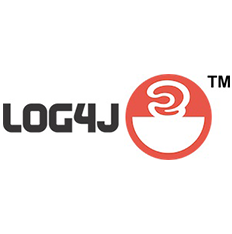Compare Products

|

|
Features API Separation
The API for Log4j is separate from the implementation making it clear for application developers which classes and methods they can use while ensuring forward compatibility. This allows the Log4j team to improve the implementation safely and in a compatible manner.
Improved Performance
Log4j 2 contains next-generation Asynchronous Loggers based on the LMAX Disruptor library. In multi-threaded scenarios Asynchronous Loggers have 18 times higher throughput and orders of magnitude lower latency than Log4j 1.x and Logback. See Asynchronous Logging Performance for details. Otherwise, Log4j 2 performs faster than Log4j 1.x in critical areas and similarly to Logback under most circumstances. See Performance for more information.
Support for multiple APIs
While the Log4j 2 API will provide the best performance, Log4j 2 provides support for the SLF4J and Commons Logging APIs.
Automatic Reloading of Configurations
Like Logback, Log4j 2 can automatically reload its configuration upon modification. Unlike Logback, it will do so without losing log events while reconfiguration is taking place.
Advanced Filtering
Like Logback, Log4j 2 supports filtering based on context data, markers, regular expressions, and other components in the Log event. Filtering can be specified to apply to all events before being passed to Loggers or as they pass through Appenders. In addition, filters can also be associated with Loggers. Unlike Logback, you can use a common Filter class in any of these circumstances.
Plugin Architecture
Log4j uses the plugin pattern to configure components. As such, you do not need to write code to create and configure an Appender, Layout, Pattern Converter, and so on. Log4j automatically recognizes plugins and uses them when a configuration references them.
Property Support
You can reference properties in a configuration, Log4j will directly replace them, or Log4j will pass them to an underlying component that will dynamically resolve them. Properties come from values defined in the configuration file, system properties, environment variables, the ThreadContext Map, and data present in the event. Users can further customize the property providers by adding their own Lookup Plugin.
Java 8 Lambda Support
Previously, if a log message was expensive to construct, you would often explicitly check if the requested log level is enabled before constructing the message. Client code running on Java 8 can benefit from Log4j's lambda support.
|
Features * Pantheios supports diagnostic logging of message statements of arbitrary complexity, consisting of heterogenous types.
* Pantheios supports filtering of log messages based on severity level including (but not limited to) the eight levels defined by the SysLog protocol.
* Pantheios supports back-end output, individually and in combination, to file, stderr/stdout, SysLog (including a custom implementation of the SysLog protocol for Windows), Windows debugger, Windows event log, COM Error Object, speech, or any custom back-end extension you care to write. Importantly, Pantheios is readily extended to use the existing transport mechanisms of feature-rich diagnostic logging libraries such as ACE, log4cpp, log4cplus, log4cxx.
|
LanguagesJava |
LanguagesC CPP |
Source TypeOpen
|
Source TypeOpen
|
License TypeApache |
License TypeBSD |
OS Type |
OS Type |
Pricing
|
Pricing
|
X
Compare Products
Select up to three two products to compare by clicking on the compare icon () of each product.
{{compareToolModel.Error}}Now comparing:
{{product.ProductName | createSubstring:25}} X